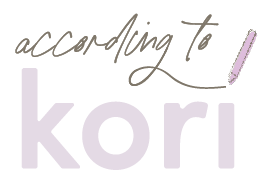Blogging 101: How Long Should My Blog Posts Be?
So you're launching a blog in 2020, and you've gone through all the necessary steps to get started.
Blog name.
Check.
Check.
Website.
Check.
Check.
Now, the fun part...writing your blog posts. Ayeeee!
There are a several key factors that go into writing a quality blog post:
The title. The title or headline of your blog post is super important because it is what draws your audience to your content.
The messaging. Of course, the message of your blog post is key. It should be written in a way that's engaging and easy to read.
The keywords. Including key search phrases that are relevant to the topic you are blogging about is crucial because it's how your content gets recognized and ranked on search engines like Google, Bing and Yahoo.
The length. Your blog post length also plays a key role in how search engines rank your content.
What is the ideal blog post length?
Well, it depends on several factors, which we'll dive into in a minute.
Studies have shown that in order for a blog post to perform well in search engine rankings, it should be a minimum of 300 words. Keyword: minimum. For the longest, blogging "experts" have perpetuated this myth that blog posts should be short and sweet, no more than 600 words. That's a lie, Craig. Actually, research has found that the longer the post, the better. I can attest to this because my top-performing blog posts (most shares and page views) have all been well over 1,000 words.
In fact, a Medium study suggests that the optimal blog post length takes about seven minutes to read, which translates to approximately 1,600 words, according to Buffer. So does this mean all of your blog posts have to be mini dissertations now? No. As I mentioned earlier, several factors can play into the length of your blog post, so it really just depends. On what exactly?
Purpose What is the goal of each blog post? To educate customers? Spread brand awareness? Increase social media engagement? Grow your email list? Improve your search engine optimization (SEO)? Different purposes will call for different length requirements. In my blogging experience, I've found that educational blog posts that help your readers solve a specific problem usually get more shares and engagement when they're lengthier.
Substance What is the overarching message that you're trying to get across to your readers? Is the focus of your blog on more thorough, in-depth topics (i.e. finance, mental health, etc.), or more light-hearted subjects that are a little easier to digest (i.e. pop culture, lifestyle, etc.)? If the topic you're covering is something you can write in 300 words or so, do that. If it's a subject that requires a little more brainpower, write more. After all, the more (words), the merrier!
Writing style What is your writing style? If it's more personable and engaging (like mine, hehe), you can get away with lengthier blog posts because, well, your writing is just that dope lol. If your writing style is more direct and to the point, shorter blog posts may be your speed (which is totally cool, too).
Posting frequency How often do you post new content on your blog? Once? Twice? Three times a week? If you post frequently (2-3x a week), you can probably get away with shorter blog posts because you're cranking out more content on a more consistent basis (go, you!).
Your audience What does your audience like? What are their interests? Passions? Pain points? That's really what it all boils down to, which can play into the length of your blog posts.
What blog post length is right for you?
75-300 words: Micro-posts of 75-300 words are best for generating discussion, according to The Write Practice. They may not be great for social shares or SEO, but if you want more comments on your actual blog posts, short and sweet may be the way to go.
300-600 words: This is the sweet spot range, according to "experts", because it's a good middle-ground for social shares and comments; however, still not long enough to get good search engine rankings.
1000-1,600 words: This range is good for generating shares on social media, especially if it's a blog post that solves a specific problem.
2,500 words: Marketing software platforms Hubspot and CoSchedule found that content with more than 2,500 words performed the best in terms of social shares, engagement and search rankings.
So, exactly how much should you write?
I know. Your head is probably spinning trying to determine the perfect blog post length. In pretty much every study, marketers agree that the more words you write, the better the results: higher traffic, search rankings and social shares. 3
Moral of the story: Lengthier blog posts are better, but try not to get too caught up in the word count. Because how much you write isn't really as important as how well you write. Quality over quantity. As long as you're writing in a clear, conversational tone and including relevant data and/or insightful information in your posts, you're good to go.
